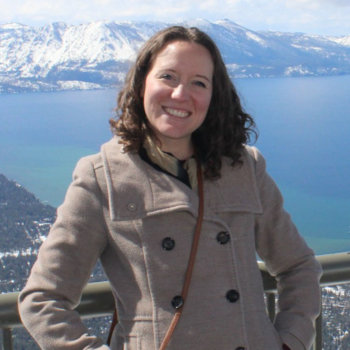
Join today, plan for tomorrow
Why you should join your professional society
Whether it’s IEEE, ASME, AIChE, APS, or a different acronym, you are probably familiar with your field’s specific professional society. I became a member of the American Nuclear Society (ANS) as a college freshman in 2013. Eight years later, serving on the ANS board of directors and working toward a PhD, I credit ANS with exposing me to a wide range of career options. In fact, I can’t point to any progress in my career without having ANS to thank in some way. All the papers at conferences helped me decide which research area to jump into, and meeting grad students from around the country helped me choose MIT. Their communication workshops made me better at public outreach, and the leadership opportunities have beefed up my resume.
A science outreach program
Most of us know our societies through the conferences. I love attending conferences! Not only because they are a fun excuse to travel, but because I’m usually involved somewhere behind-the-scenes. My involvement began at my undergraduate university with an engineering outreach program organized by the University of Pittsburgh’s brand-new student section of the American Nuclear Society. I wanted to stay involved, so when I learned there was a national ANS student conference at MIT that year, I wanted to go. I encountered resistance from my school because I was only a freshman. I hadn’t taken any nuclear classes yet, and none of the faculty knew me. So, I spent my own money to buy a plane ticket to Boston. This wouldn’t be the first time I encountered resistance due to my young age. At times, people think I’m trying to get ahead of myself or jump the line. But most of the time, I can explain the benefits of involvement which usually smooths things over. To me, this first ANS conference was important for a freshman trying to learn about the field and pick a direction for college. Now, after countless ANS conferences around the country (and even the world) I can guarantee I am a better scientist.
Getting more involved in your professional society starts at the national conferences. Did you know there are a lot more meetings going on than the technical sessions? There are loads of committees who run the scientific field including industry standards and policy positions. At my first meeting of the ANS Mathematics & Computation Division, I didn’t say much. I introduced myself, but I mostly took notes. The next time, I volunteered to help create a flyer for an award. Now, I am a regular sight at those meetings, and I have even been nominated to a position on the division’s executive committee to vote and make programmatic decisions. I didn’t ultimately win the seat in the election, but I continue to volunteer and speak up when appropriate. The more advanced a graduate student you are, the more you will have to contribute! The other people at these meetings could be your future boss, or a collaborator on your next project. Getting to know them early is a great idea and has really paid off for me.
There are also plenty of non-technical ways to get involved: there are countless budgets, events, and logistics to keep a society functioning. For example, I got involved with the ANS Student Sections Committee which gives support to ANS sections at universities. From my work there, I got familiar with the inner workings of ANS and was eligible for a special seat on the ANS Board of Directors reserved for an elected student representative. I now vote to pass budgets and bylaws that influence the direction of the society with a special eye toward making sure student needs are addressed.
Not everyone has the time to be involved in a bunch of committees. However, if you have the time to volunteer to organize an event, you become known to the other participants as a leader. By the time you graduate with your PhD, you’ll have your foot in the door with countless professionals who can help you navigate the job market (including academia, policy, or industry). Even after getting a job, your society keeps you up to date with the latest technology and industry trends. And honestly, you never know when you’ll need to change jobs and tap your network.
Grad students have so much to gain from their professional societies, far beyond presenting research results. The leadership opportunities are practically endless, and they are usually looking for young people to get involved! Some societies are very research oriented (like the American Physical Society), others are industry focused (e.g. Institute of Electrical and Electronics Engineers), and yet others are “catalyst” organizations for professional development (e.g. National Society of Black Engineers). If you’re not sure which one to join, check out this long list and ask your mentors which ones they would recommend for your research area of interest.
Share this post:
